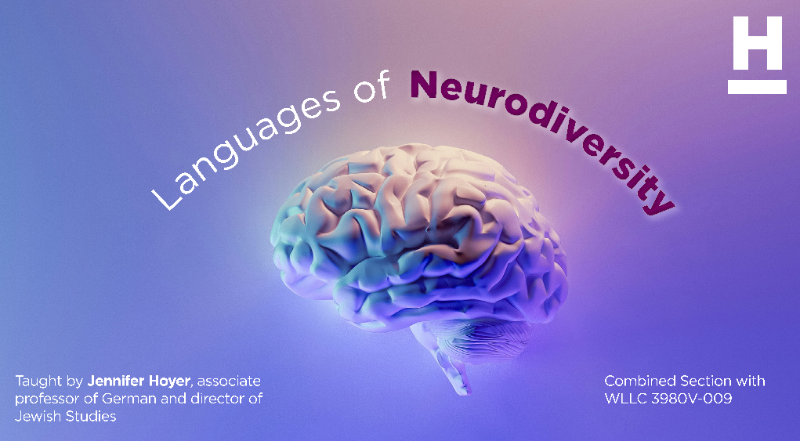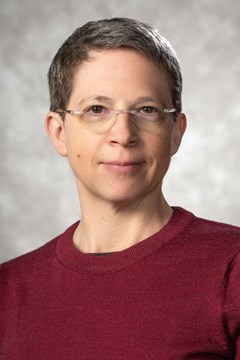Languages of Neurodiversity

Languages of Neurodiversity
HNRS 351HV-002/WLLC 3980V-009
Jennifer Hoyer
Spring 2025
T/TH 2:00 - 3:15 p.m.
Language is one of the ways we create our reality. The term “neurodiversity,” for example, is often mistakenly used as a euphemism for autism or adhd and is assumed to be the opposite of “neurotypical.” What sort of reality do these words and their use (or misuse) create and express, from whose point of view and to whose benefit? We will explore these ideas—both in the course materials and in the structure of the course itself.
In this seminar, we will begin by exploring the rise of the concept of neurodiversity, which refers to the diversity of neurotypes in the human population, and the ways it has been used to create binary notions of “neurodivergence” and “neurotypicality.” We will look at the language of “neurotypicality.” We will then look for and study the ways (conscious and unconscious) that people who identify as “ND” (neurodivergent) express their experiences—and even question the idea of “neurodivergent” or “neurotypical.” What kinds of “languages” do we use? How do different languages around the world conceive of neurodiversity? How do our perceptions of space and time affect our expression? Among the wide array of perspectives in this course are autism, adhd, dyslexia, dyscalculia, ocd, Tourette syndrome, epilepsy, depression, and neurotypicality; and we will discuss throughout how gender, race, and socioeconomic status reverberate in the neurodiversity paradigm.
The class itself is meant to enact the neurodiversity paradigm—all neurotypes are welcome!
Course Credit
- Course credit coming soon.
About Jennifer Hoyer
 Jennifer Hoyer is an associate professor of German and the founding director of the Jewish Studies
program at the U of A. Hoyer's first book reframed the conventional interpretation
of German Jewish Holocaust poet Nelly Sachs; the current research project, "Thinking
Inconveniently: lyrical mathematics," arose from Sachs's (and Hoyer's) fascination
with mathematics. Hoyer has recently published several articles on poetic use of mathematical
ideas from the seventeenth to the twentieth centuries, and has been working in the
classroom and in national organizations to create space for neurodivergent students
and academics.
Jennifer Hoyer is an associate professor of German and the founding director of the Jewish Studies
program at the U of A. Hoyer's first book reframed the conventional interpretation
of German Jewish Holocaust poet Nelly Sachs; the current research project, "Thinking
Inconveniently: lyrical mathematics," arose from Sachs's (and Hoyer's) fascination
with mathematics. Hoyer has recently published several articles on poetic use of mathematical
ideas from the seventeenth to the twentieth centuries, and has been working in the
classroom and in national organizations to create space for neurodivergent students
and academics.